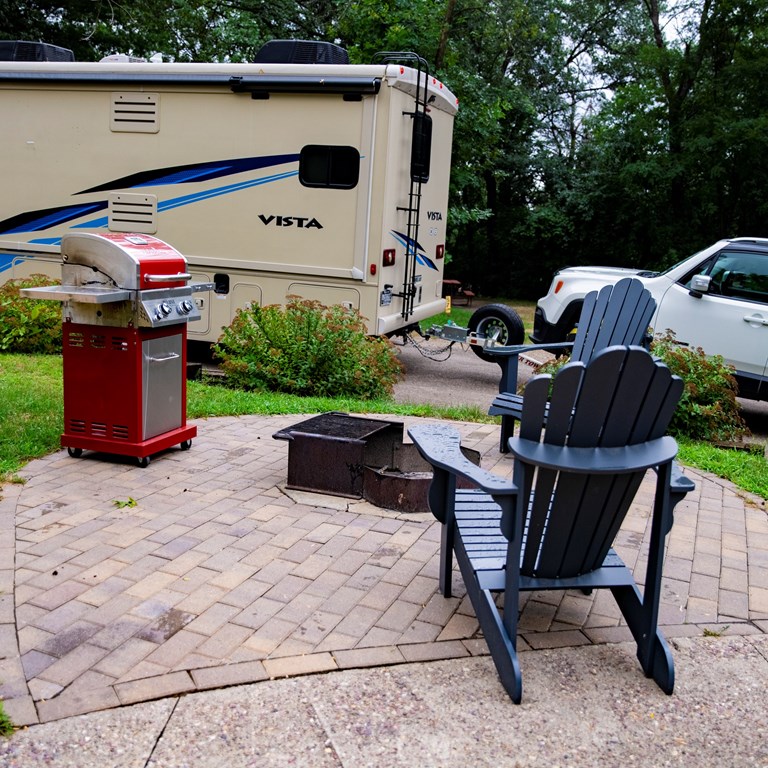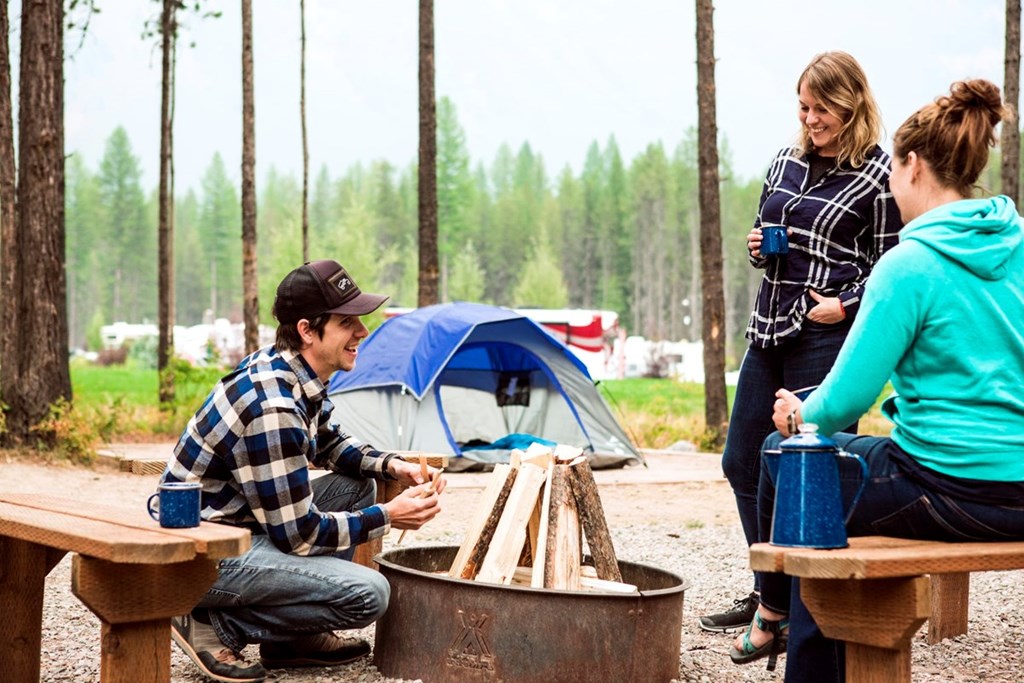Your cart is empty!
Make checkout easy by booking all your reservations at once. Add your sites from different campgrounds into your shopping cart* and then choose checkout.


You may be wondering if camping is safe, and it’s a completely understandable thing to wonder if you’re never been before.
While camping is an enjoyable activity, there are many tips to ensure your safety during a fun-filled weekend or adventurous week-long trip. Check out the following camping safety guide to learn more about how to make the most of your next campaign trip by keeping everyone safe and comfortable.
To reserve the right type of shelter and campground site, consider your age, physical limitations and medical needs — as well as those of everyone else in your group. Different amenities are available if you’re staying in a tent compared to a cabin or RV, so plan accordingly as to what gear you’ll need based on your site choice.
For example, camping in a cabin provides you with full beds and bunk beds, while sleeping in a tent will require you to bring an air mattress, sleeping bag or other accommodations.
Although RVs and cabins offer more amenities and safety compared to tents, about 60% of campers still report opting for tent camping. At KOA, we provide tent campers with picnic tables, fire rings, nearby restrooms with showers and a spacious area for your whole crew to hang out, relax and spend quality time together.
Make sure to keep an eye on the weather forecast before your trip. As we all know, weather can change within the hour, which means it’s essential to pack for inclement weather such as rain, snow, and high heat and humidity. About 33% of campers plan trips one month in advance to be proactive.
Leaving food out on picnic tables or anywhere not secured can increase your chances of attracting wildlife. To prevent unwanted confrontations with an animal, pack your food in tight, waterproof containers and store them in an insulated cooler. To avoid food-borne illnesses, wash your hands and separate raw food from cooked meals. One in 6 Americans get sick from contaminated food every year, so make sure you’re following proper food safety practices.
Fires within your campground site should be at least 15 feet from tent walls, shrubs and trees. It’s important to keep your fire small and contained in a designated area like a fire pit. You should also never leave a fire unattended. Always keep a water bucket nearby and put the fire out before leaving or going to sleep — making sure to drown all the embers, not just the red ones.
To protect yourself from mosquitos, ticks and other insects, use insect repellent that doesn’t dissolve easily in water. Make sure you check for ticks daily, especially in unsuspecting areas of your body. It’s also recommended to wear long-sleeved shirts and long pants when hiking to avoid direct contact with insects. After a hike or any outdoor activity, place your clothes in the dryer for at least 10 min on high heat to kill any ticks that may have come home on your clothing.
Packing an EpiPen or other medications for your known allergies is a smart way to prepare for any unexpected encounters. You should also keep a first aid kit handy and watch for dizziness, labored breathing and swelling around bites or places where plants or insects may have been in contact with your skin.
We often think UV rays are absent on cloudy days, but they can burn your skin just as severely as on a sunny day. Midday hours are when the sun’s rays are the strongest — seeking shade, wearing a hat or putting on sunglasses can help protect you from the UV rays. We recommend using a broad-spectrum sunscreen and lip screen with at least SPF 15.
Staying hydrated doesn’t mean drinking when you’re thirsty — it means drinking water regularly throughout the day, even if you don’t think you’re thirsty. An emergency kit should include at least a 3- to 5-day supply of bottled water. If you feel thirsty, chances are you’re already dehydrated
Storing your food in a car, a bear-safe container or food storage locker can prevent attracting unwanted wildlife. Be sure to avoid touching and feeding animals — but if you do come in contact with any animals. wash your hands with soap and water or by using a hand sanitizer containing at least 60% alcohol.
Camping is a fun experience, but it’s also imperative to pay attention to your body, what it needs and how it reacts to the environment. Keep your wits about you, get plenty of sleep and limit your alcohol intake. About 3.4 million U.S. households became new campers over the last three years — enjoy your time outdoors and have fun with your fellow campers.
Situated in the enchanting Wisconsin Dells, which is often referred to as the "Waterpark Capital of the World," our KOA Holiday features a country setting and is perfect for individuals and families who wish to explore the attractions of the Dells then escape the city to the quiet and natural setting of our campground. Our KOA Holiday also offers a wide range of accommodation options to suit every camper's preference. Whether you're an RV enthusiast, prefer tent camping, or desire the comforts of a cozy Deluxe or Camping Cabin, this campground has it all. You can even book your RV Rentals through our partnership with RVshare. Enjoy and play at the basketball and full size sand volleyball courts, splash pad, playground, planned activities, and more.
Reserve your campsite or cabin today and unlock the magic of this remarkable destination!
That doesn't mean this area has to always be empty. When you start reviewing camping options, your history will display here to help compare sites and find the best stay. You will be able to share your stay information with friends or family and save it for a later time if you have a KOA Account.
Make checkout easy by booking all your reservations at once. Add your sites from different campgrounds into your shopping cart* and then choose checkout.